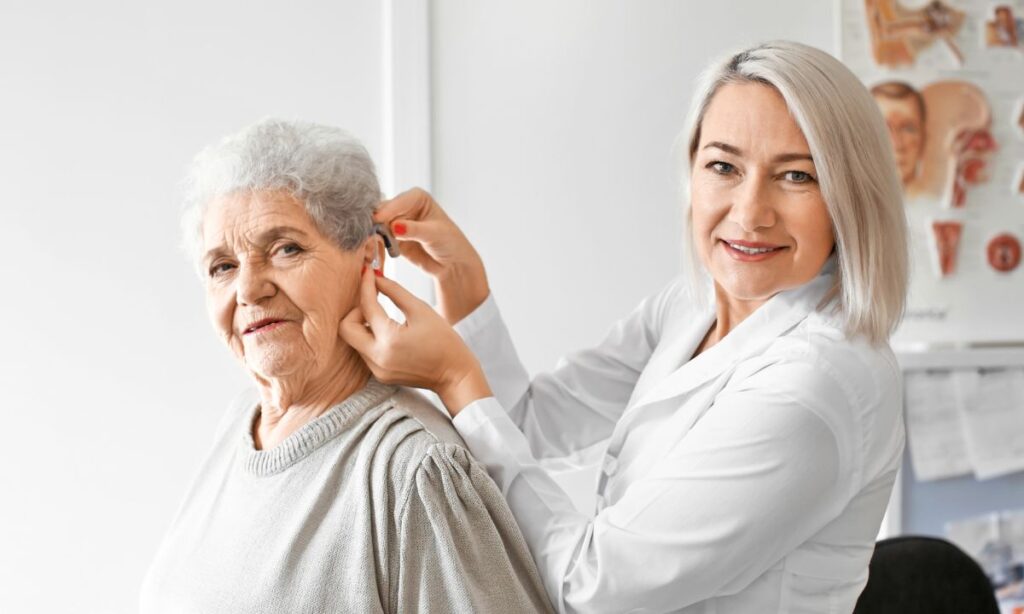The idea might seem intimidating if you’ve never seen or ever been to a hearing test clinic. You may have noticed changes in how you hear conversations, or perhaps a loved one has been encouraging you to check your hearing. Whatever the reason, taking that first step is something to be proud of. It’s a proactive move toward better communication, improved quality of life, and long-term hearing health.
In this article, we’ll walk you through what typically happens during a first visit to a hearing test clinic, what you should bring, and how the experience can help you take charge of your hearing wellness.
Why People Visit a Hearing Test Clinic
Most people take hearing for granted until it starts to change. It’s not always dramatic sometimes, it begins with missing words in conversations or frequently turning up the volume on the TV. A visit to a hearing test clinic in Fairfield can help identify whether these issues are due to hearing loss, earwax buildup, or other underlying conditions.
The main goal of a clinic is to assess the current state of your hearing, offer professional insight, and recommend solutions tailored to your needs. Feeling unsure is entirely normal, whether it’s your first time or just your first visit in a long time. Knowing what to expect can ease that anxiety.
Preparing for Your Appointment
Before your visit, list any symptoms or hearing challenges you’ve experienced. Have you noticed it’s harder to follow conversations in noisy places? Do you often ask people to repeat themselves? Jotting these down can help the hearing professional get a clear picture of your situation.
It’s also a good idea to bring a companion who can share their observations about your hearing and support you through the appointment. If you wear prescription glasses or use medications, bring those along, as they can provide context for your overall health.
The Hearing Assessment Process
Once you arrive at the hearing test clinic, you’ll be welcomed by friendly staff and asked to fill out a brief medical and hearing history form. This helps the clinician understand any potential causes of hearing issues, including family history, exposure to loud environments, or recent illnesses.
After the paperwork, the hearing specialist will guide you through a series of steps:
Initial Conversation
The appointment often starts with a discussion of your symptoms, lifestyle, and concerns. This part is informal and conversational. It’s about building a picture of your hearing in the context of your daily life.
Physical Ear Examination
Next, the specialist will examine your ears using an otoscope, a small device with a light. This allows them to check for wax blockages, infections, or abnormalities that could impact your hearing.
Hearing Tests
This is where the real evaluation begins. You’ll be taken to a soundproof booth or quiet room and asked to wear headphones. The test typically includes:
- Pure-tone audiometry: You’ll listen to a range of tones at different pitches and volumes and indicate when you hear them.
- Speech recognition tests: You’ll repeat words or phrases spoken at various volumes to assess your speech understanding.
- Tympanometry (if needed): This checks how well your eardrum moves and can help identify fluid or pressure issues in the middle ear.
These tests are painless and non-invasive, designed to pinpoint the type and severity of hearing loss, if any.
Understanding Your Results
One of the most important aspects of visiting a hearing test clinic is the feedback you receive. After the assessment, the hearing professional will review your results, typically presented on an audiogram chart. This chart shows how well you hear sounds at various frequencies and volumes.
If the test reveals that your hearing is within the normal range, that’s excellent news—and your visit serves as a helpful baseline for future checks. If hearing loss is detected, don’t worry. The specialist will discuss possible causes and talk through your options. These might include hearing aids, communication strategies, or referrals to medical professionals for further evaluation.
Why Choose a Local Clinic
There are many reasons to seek care from a hearing test clinic in Fairfield if you’re in the area. Local clinics often provide a more personal, community-focused approach and can offer consistent follow-up appointments close to home. Convenience matters, especially if you’ll need regular support or fittings.
More importantly, a hearing test clinic Fairfield residents trust will prioritize long-term hearing wellness and ensure that your care doesn’t stop after the first visit. Follow-up support, education, and professional guidance are key parts of your journey.
Taking the First Step Toward Better Hearing
The truth is that many people wait far too long before seeking help with hearing issues. But once you’ve visited a hearing test clinic and gained clarity about your hearing health, you’ll likely wish you had gone sooner. Whether the result is reassurance or the beginning of a new treatment plan, action can protect your hearing for years.
Your first visit doesn’t have to be stressful or confusing. The experience is often simple, informative, and empowering, with compassionate professionals and a straightforward process. Think of it as a gift to yourself, a step toward being more present in conversations, more engaged with loved ones, and more confident in daily life.
Ready to leap? Understanding what to expect makes it easier to take that first step. A caring, professional team at your local hearing test clinic is prepared to guide you on your journey to better hearing.
ALSO READ: Enabling Healthcare Organizations with Flexible Locum Staffing







